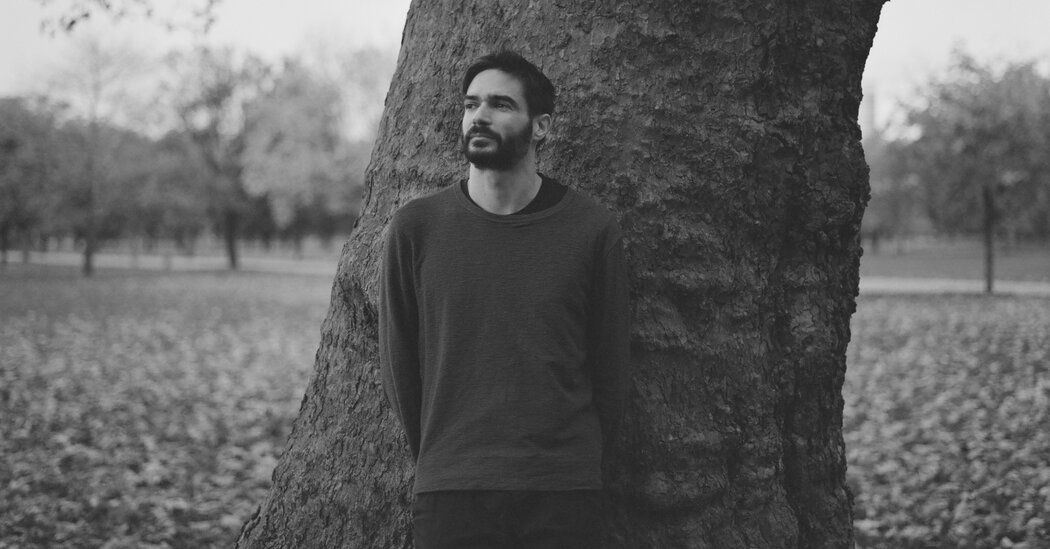
Trevor Oswalt, an artist who records psychoactive soundtracks sporting names like “Music for Mushrooms” and “Spores” as East Forest, had also become a new friend. Years earlier, Oswalt had visited Dass in Maui, recording conversations he turned into a winsome collection of inspirational tunes. When Dass died in late 2019, his foundation, Love Remember Serve, dispatched a clutch of archival lectures to Oswalt, who came to Hopkins for help.
Oswalt had already stripped the two-hour reel of overt religious content, creating a 15-minute edit. “We wanted something universal and uplifting, that’s hard to argue with,” Oswalt said in a video interview from his studio, a painting of Dass peering over his shoulder.
In October 2020, Hopkins sat at the polished upright piano in the corner of his own studio, improvising to his first impressions of Dass’s words. “Quiet the mind. Open the heart,” Dass encouraged in a voice as calming as a cup of chamomile. This, Hopkins realized, was an album’s end; the music he’d found in Ecuadorean silence was its beginning.
“I always know when the spark of something has appeared,” he said. “That is one of the best feelings, when you know something is going to be important.”
Hopkins spent the next four months of lockdown searching for tones to fill the frame, finding the right sounds serendipitously — in a beer glass he tapped, and the noise from a software fail. He shipped tracks to Dan Kijowski, a childhood friend with whom he had shared several psychedelic trips, and Kijowski broadcast them through eight speakers suspended in trees around his family farm, recording the playback. Hopkins wove the results into the album, repeatedly listening from his studio’s couch until he knew this was his paragon of music for psychedelic therapy.
“On previous records, I’d been aware I wanted them to do well commercially, that I needed a big track,” Hopkins said, frowning beneath the thin beard that framed his patrician face. “This was an opportunity to drop every level of pretense. I was just trying to translate the honest experience of living.”



